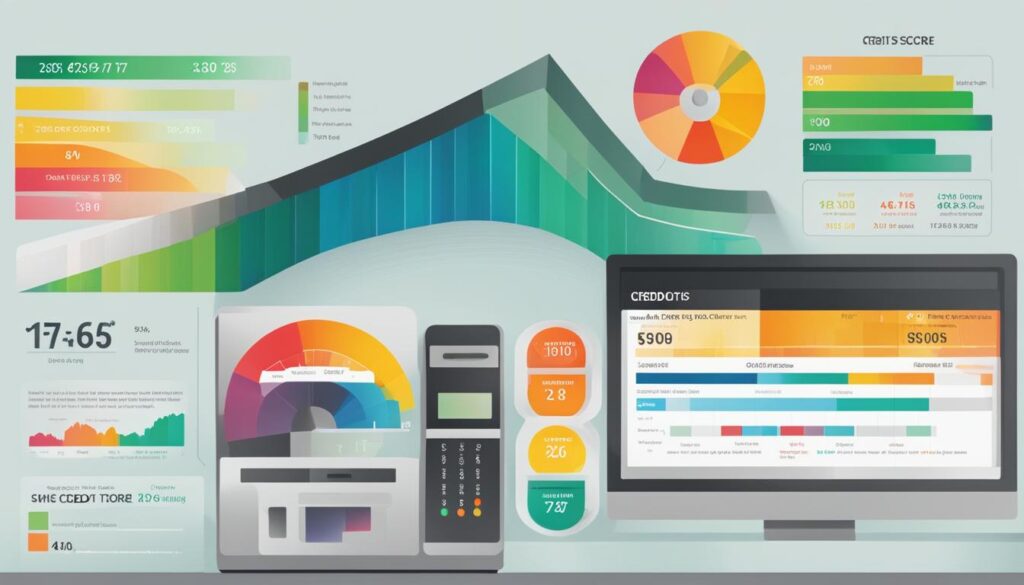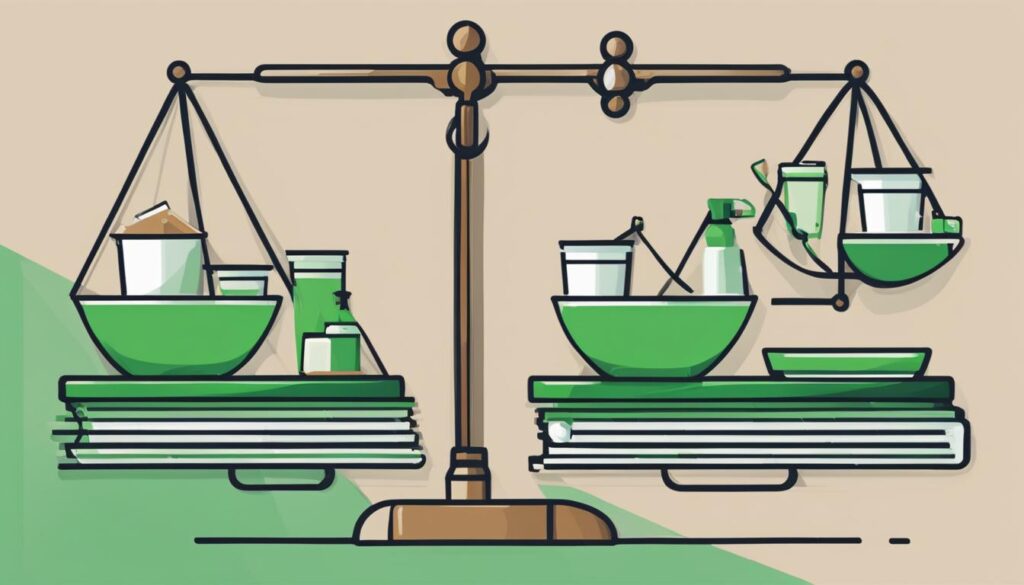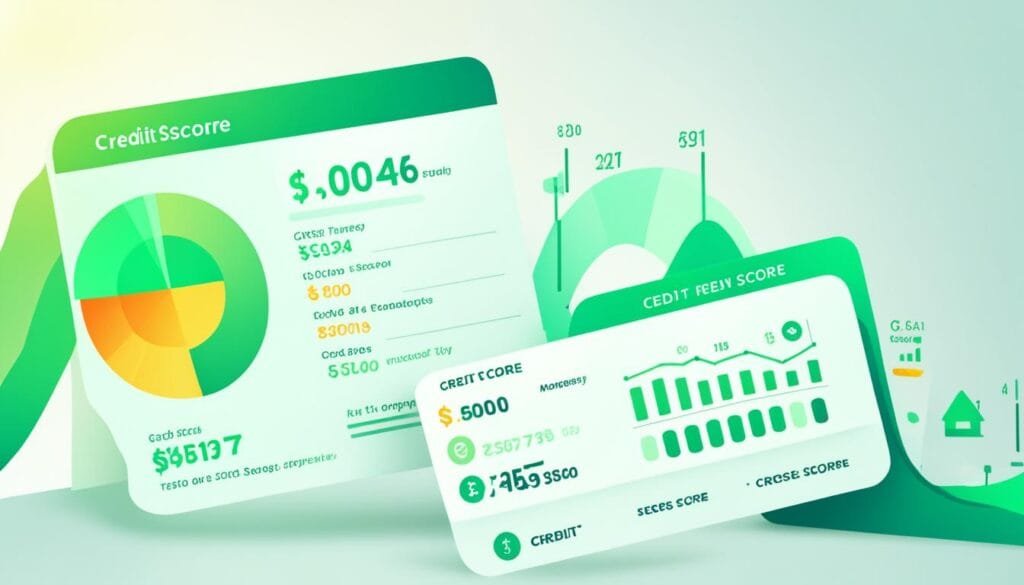Building a good credit history is crucial when applying for a mortgage. Lenders use your credit score to determine your interest rate and down payment requirements. To improve your chances of being approved for a home loan, it’s important to review your credit report and take steps to improve your credit score.
One of the first steps in building credit for a mortgage is checking your credit reports. Reviewing your reports from the three major credit bureaus will help you identify any errors or negative information that may be affecting your credit score. It’s essential to address these issues and ensure the accuracy of your credit report.
Monitoring your credit score is another important aspect of building credit for a mortgage. Understanding how your score is calculated and the factors that contribute to it can help you make informed decisions and take steps to improve your creditworthiness.
Paying off delinquent accounts and making payments on time are essential for building a positive credit history. Your payment history is the largest factor in determining your credit score, so it’s crucial to bring any delinquent accounts current and consistently make timely payments.
Avoiding new debt and keeping low balances on your credit cards are also critical. Applying for new loans can negatively impact your credit, while low balances and a low debt-to-income ratio demonstrate financial stability to lenders.
Finally, be patient and committed to the process. Building good credit for a mortgage takes time and effort. By following these essential tips, you can improve your credit and increase your chances of being approved for a mortgage.
Key Takeaways:
- Check your credit reports for errors or negative information.
- Monitor your credit score and understand how it’s calculated.
- Pay off delinquent accounts and make payments on time.
- Avoid taking on new debt and keep low balances on credit cards.
- Be patient and committed to the process of building good credit for a mortgage.
Check Your Credit Reports
Before applying for a mortgage, it’s crucial to review your credit reports from the three major credit bureaus. Checking your credit reports will allow you to identify any errors or negative information that may be impacting your credit score.
Reviewing your credit reports gives you the opportunity to:
- Check for inaccuracies or incorrect information
- Identify any accounts that may have been fraudulently opened in your name
- Ensure that all your accounts and payment history are accurately reported
By thoroughly examining your credit reports, you can gain valuable insights into your financial standing and take the necessary steps to improve your creditworthiness. This will increase your chances of being approved for a mortgage.
If you discover any errors on your credit reports, it’s vital to take action immediately. Start by notifying the credit bureaus and creditors about the inaccuracies. Send your dispute letters via certified mail and include any supporting documentation that can help substantiate your claim.
Tip: When disputing errors on your credit reports, be clear, concise, and provide as much evidence as possible. This will strengthen your case and expedite the correction process.
Once the credit bureaus receive your dispute, they have 30 days to investigate and respond to your claim. During this time, they will contact the creditor to validate the information. If the information cannot be verified or is found to be incorrect, the credit bureaus are required to remove it from your credit reports.
After the errors have been corrected, it’s essential to follow up with the credit bureaus to ensure that the disputed accounts are removed from your credit reports. This will help improve your credit score and increase your chances of obtaining a favorable mortgage.
Checking your credit reports regularly is a proactive measure that can help you maintain control of your financial future. By staying vigilant and addressing any credit report errors, you’ll be on your way to building a solid credit history and enhancing your chances of securing the mortgage you desire.
Monitor Your Credit Score
Your credit score plays a significant role in mortgage approval. It is crucial to keep a close eye on your credit score and understand the factors that contribute to it. By monitoring your credit score regularly, you can stay informed about any changes or fluctuations that may impact your eligibility for a mortgage.
The credit score calculation is based on the FICO categories, which include:
- Payment History: This category evaluates your track record of making timely payments on your debts. It accounts for approximately 35% of your credit score. A positive payment history can significantly boost your credit score.
- Amounts Owed: Credit utilization and the total amount of debt you owe are considered in this category. It makes up about 30% of your credit score. Maintaining low balances and using credit responsibly can help improve your credit score.
- Length of Credit History: The length of time you have had credit determines approximately 15% of your credit score. A longer credit history demonstrates a track record of responsible financial behavior.
- New Credit: Opening multiple new credit accounts in a short period can suggest financial instability. This category accounts for about 10% of your credit score. Limiting new credit applications can help maintain a stable credit profile.
- Types of Credit Used: Having a diverse mix of credit types, such as credit cards, loans, and mortgages, can contribute positively to your credit score. This category makes up roughly 10% of your credit score.
Understanding how these categories affect your credit score allows you to make informed decisions and take the necessary steps to improve your score. By prioritizing timely payments, keeping balances low, maintaining a long credit history, being cautious with new credit applications, and having a mix of different credit types, you can work towards raising your credit score and improving your chances of mortgage approval.
Remember, improving your credit score takes time and consistent effort. Monitoring your credit score regularly and adopting responsible financial habits will help you achieve your goal of securing a mortgage with favorable terms.

| Fico Category | Description |
|---|---|
| Payment History | Evaluates your track record of making timely payments on debts |
| Amounts Owed | Considers credit utilization and the total amount of debt owed |
| Length of Credit History | The duration of your credit accounts and how long they have been active |
| New Credit | Examines recent credit applications and accounts |
| Types of Credit Used | Evaluates the variety of credit types, such as credit cards, loans, and mortgages |
Pay Off Delinquent Accounts and Make Payments on Time
Payment history is the largest factor in determining your credit score. To build a positive credit history and improve your chances of getting approved for a mortgage, it is crucial to pay off any delinquent accounts and bring them current.
Making timely payments consistently plays a vital role in building a positive credit history. By ensuring that your payments are made on time, you demonstrate financial consistency and responsibility to lenders. This helps them gauge your creditworthiness and trustworthiness as a borrower.
However, it is important to note that rebuilding credit after delinquencies and late payments takes time. It is advisable to keep your accounts current for several months before applying for a mortgage. This allows you to establish a pattern of financial consistency and demonstrate your commitment to meeting your financial obligations.
Importance of Paying Off Delinquent Accounts
“Paying off delinquent accounts is crucial for improving your credit score. It shows lenders that you are taking steps to rectify any past financial difficulties and are committed to managing your debts responsibly.”
– Jessica Johnson, Financial Advisor
By paying off delinquent accounts, you not only eliminate negative marks on your credit report but also show lenders that you are actively working towards improving your financial situation. This can have a positive impact on your credit score and increase your chances of being approved for a mortgage.
Remember, building a strong credit history takes time and dedication. By paying off delinquent accounts, making timely payments, and consistently managing your finances, you can establish a solid foundation for building credit history and improve your prospects of obtaining a favorable mortgage.
Avoid New Debt and Keep Low Balances
When trying to improve your credit score for a mortgage, it’s crucial to avoid taking on new debt. Lenders view new debt as a sign of financial instability, which can negatively impact your credit report. By steering clear of new loans and credit card applications, you can demonstrate your financial responsibility and increase your chances of mortgage approval.
Additionally, maintaining low balances on your credit cards is essential for maintaining a healthy debt-to-income ratio. This ratio compares your monthly debt payments to your income and indicates your ability to manage your financial obligations. Lenders prefer borrowers with a low debt-to-income ratio, as it reflects financial stability and the ability to afford monthly mortgage payments.
To improve your credit score and debt-to-income ratio, consider paying down balances on your credit cards. Aim to keep your balances at or below 30% of your credit limit. This demonstrates responsible credit utilization and can positively impact your credit score. It’s recommended to create a payment plan to steadily reduce your credit card balances over time.
“Avoiding new debt and keeping low balances are key factors in building a strong credit profile for a mortgage. Lenders want to see that you can manage your finances responsibly and have a low debt-to-income ratio.”

Credit Utilization Ratio
The credit utilization ratio is an important factor in determining your credit score. It measures the amount of credit you’re using compared to your total available credit. Keeping your credit utilization ratio low demonstrates responsible credit management and can positively impact your credit score.
| Credit Card Balance | Credit Limit | Credit Utilization Ratio |
|---|---|---|
| $500 | $2,000 | 25% |
| $1,000 | $2,000 | 50% |
| $1,500 | $2,000 | 75% |
As shown in the table above, a lower credit utilization ratio is more favorable for your credit score. Aim to keep your credit card balances as low as possible compared to your credit limits to maintain a healthy credit utilization ratio.
How Does Understanding Credit Utilization Ratio Help in Building Credit for a Mortgage?
Harnessing credit utilization ratio understanding empowers potential homeowners to fortify their creditworthiness. By managing the proportion of credit used to credit available, individuals signal fiscal responsibility to lenders, achieving more favorable mortgage terms and interest rates, thus paving a smoother path to home ownership.
Conclusion
Building credit for a mortgage is a gradual process that requires time, effort, and responsible financial habits. By following the essential tips discussed in this article, such as checking your credit reports, monitoring your credit score, paying off delinquent accounts, making payments on time, avoiding new debt, keeping low balances, and keeping your accounts open, you can improve your credit and increase your chances of being approved for a mortgage.
Remember, building good credit takes time, so start your journey today and stay committed to making positive financial decisions. The steps outlined in this article provide a solid foundation for building credit and establishing a strong credit history. With dedication and persistence, you can achieve your goal of securing a mortgage and becoming a homeowner. Don’t let a lack of credit or a low credit score discourage you; instead, use these strategies to take control of your financial future.
Take the necessary steps to review and improve your credit, and consult with a financial advisor or mortgage professional who can provide additional guidance tailored to your specific situation. Building credit for a mortgage is an important part of the homebuying process, and with careful planning and responsible financial habits, you can pave the way to homeownership.
FAQ
How can I build credit for a mortgage?
To build credit for a mortgage, you should check your credit reports for errors, monitor your credit score, pay off delinquent accounts, make payments on time, avoid new debt, keep low balances, and keep your accounts open.
Why is it important to check my credit reports?
Checking your credit reports is important because it helps you identify any errors or negative information that may be affecting your credit score. If you find any errors, you must notify the credit bureaus and creditors to have them corrected or disputed.
How does my credit score impact mortgage approval?
Your credit score plays a significant role in mortgage approval. Lenders use your credit score to determine your interest rate and down payment requirements. It’s important to monitor your credit score regularly and understand the factors that contribute to it.
What is the largest factor in determining my credit score?
The largest factor in determining your credit score is your payment history. Making payments on time consistently and paying off any delinquent accounts are crucial steps to building a positive credit history for a mortgage.
Should I avoid new debt when trying to build credit for a mortgage?
Yes, you should avoid new debt when trying to build credit for a mortgage. Lenders interpret new debt as a sign of financial instability. Additionally, keeping low balances on your credit cards is crucial for maintaining a low debt-to-income ratio, which shows lenders that you can afford your monthly mortgage payments.
How long does it take to build good credit for a mortgage?
Building good credit for a mortgage is a gradual process that takes time, effort, and responsible financial habits. It’s important to start your credit-building journey today and stay committed to making positive financial decisions to increase your chances of being approved for a mortgage.

